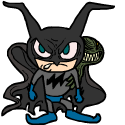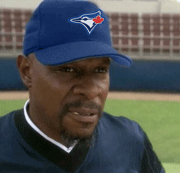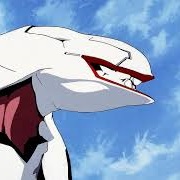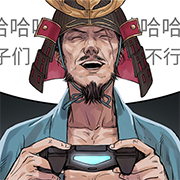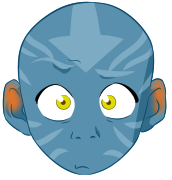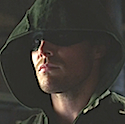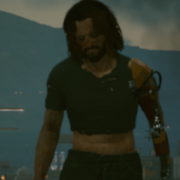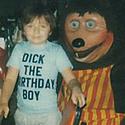|
Yaws posted:Quick! Everyone dogpile on Tezzor! Cowardice.
|
|
|
|

|
| # ? May 30, 2024 21:34 |
|
Mechafunkzilla posted:Why don't you try talking about movies instead of whining about how other people are talking about movies? Someone just said Count Dooku means Count [poo poo]. Don't take things so seriously my man.
|
|
|
|
Yaws posted:Someone just said Count Dooku means Count [poo poo]. Don't take things so seriously my man. Sidious, insidious. Dooku, dookie.
|
|
|
|
Hey, does everyone know that there's another video where voice actors read the Star Wars radio play? It starts where the other one ended and has Phil Lamarr and Grey Delise: https://www.youtube.com/watch?v=GffZ3f1m0Tg
|
|
|
|
Lord Krangdar posted:Sidious, insidious. Dooku, dookie. Maybe Lucas is operating on a whole different level than us. Maybe SMG is dumb. We may never know
|
|
|
|
Prolonged Priapism posted:The climax of the film centers around exactly these "holy poo poo, we're the same" moments. Luke realizes he's the same as Vader, and tosses his saber, breaking the cycle. Han realizes he can assume the arrogance (and appearance) of the Imperials and draw them out of the shield generator instead of fighting his way in. Lando realizes he needn't be trapped between the Death Star and the Star Destroyers - he can mix with their fleet, and neutralize the Death Star. This is an interesting point.
|
|
|
|
Yaws posted:Maybe Lucas is operating on a whole different level than us. Maybe SMG is dumb. We may never know Almost like....a whole different spectrum.
|
|
|
|
Yaws posted:Maybe Lucas is operating on a whole different level than us. Maybe SMG is dumb. We may never know I think maybe it's more likely that some people are operating on a different level. But perhaps not in the same sense that you mean.
|
|
|
|
Darth Icky
|
|
|
|
Darth Insaneus
|
|
|
|
It's simple. He's a count...who's also a duke. He's a double-aristocrat.
|
|
|
|
Let's talk about something else. It occurs to me that The Force Awakens has a lot more mysteries in it than any of the other films in the series did. They sometimes had twists, but TFA is the first one that raises questions and even presents possible answers but doesn't actually tell you what's going on yet. Things like "where did Rey come from," "who the heck is Snoke?" and "why did Ben Solo fall to the dark side?". We can come up with plenty of possible answers but it's interesting that we're being presented with the questions this way. I wonder what it says about the way the trilogy is going to be structured, and how many of these questions will still be unanswered after Episode VIII.
|
|
|
|
I think "Dooku" is just a silly Star Wars name that's based on the Japanese word for poison, doku. Lucas even pronounces it that way. Regardless, even with the in-universe pronunciation it's not nearly as silly as people always try to make it out to be. Do people also burst out in childish hysterics whenever they hear the word "Duke"? Personally, I find it pretty hard to take Grand Muff Tarkin seriously as a villain. His name makes him sound like a huge pussy. Phylodox posted:It's simple. He's a count...who's also a duke. He's a double-aristocrat. Also this. Duke Countu.
|
|
|
|
Rand Brittain posted:Let's talk about something else. It's because movies now have sequel hooks built into them and function as much as first acts for a three-movie franchise as stories in and of themselves. They know they have more movies, so they waste our time by dropping those hooks. Along with the habit of making every action or effects picture an overstuffed billion-dollar tentpole, it's the thing I hate the most about modern movies. Oscar Isaacs doesn't really belong in the story, but he's here and if his story is a little rushed then you'll get to enjoy his solo spinoff movie in 2018. gently caress movies.
|
|
|
|
Rand Brittain posted:Let's talk about something else. Yes, TFA is written like a TV show pilot. The most interesting things in the movie are interesting mainly because we don't know anything about them yet. It's a pretty basic writing trick. Of course, if you haven't already put at least some thought into everything beforehand, then you're going to be in a load of trouble when it comes time to providing solutions to the mysteries. Luckily for J.J. and Kasdan, they're not the ones who have to provide the solutions. They got a pretty easy writing gig with this movie, all things considered. I mean, except for the time crunch. Which I'd bet is at least one reason the story ended up being so derivative.
|
|
|
|
Jack Gladney posted:It's because movies now have sequel hooks built into them and function as much as first acts for a three-movie franchise as stories in and of themselves. They know they have more movies, so they waste our time by dropping those hooks. Along with the habit of making every action or effects picture an overstuffed billion-dollar tentpole, it's the thing I hate the most about modern movies. Oscar Isaacs doesn't really belong in the story, but he's here and if his story is a little rushed then you'll get to enjoy his solo spinoff movie in 2018. gently caress movies. I think this is a little cynical, and you're not letting the film defend itself on its own merits. However, I was thinking similar things when I read the post. My girlfriend couldn't give me a good reason for why Kylo Ren was being evil. She just said he wanted power, when I asked why he wanted power she couldn't tell me. Anakin seeks more power because he wants to protect people he loves: his mom and then padme. Of course, things go awry for him, for somewhat related reasons.
|
|
|
|
Darth Vader didn't have a story at the start beyond being seduced by the dark side and corrupted. Rylo Ken seems like an insecure overcompensating immature little poo poo who enjoys evil because he wants people to respect him and to be good at something yet knows deep down that nobody respects him and that he's not that great at anything. He comes off like a neo-nazi or a school shooter. The character work in both the script and the acting was probably my favorite part of the movie, as it can say a lot by showing a little.
|
|
|
|
SHISHKABOB posted:Anakin seeks more power because he wants to protect people he loves: his mom and then padme. Of course, things go awry for him, for somewhat related reasons. That's part of it. Another is that he is a foolish slave that didn't grow up in Polite Society. His naivete and simple backwoods ways were outdated. Palpatine found the perfectly malleable country rube. The film is classist in that way meesa thinks
|
|
|
SHISHKABOB posted:However, I was thinking similar things when I read the post. My girlfriend couldn't give me a good reason for why Kylo Ren was being evil. She just said he wanted power, when I asked why he wanted power she couldn't tell me. He had a teenage "gently caress you, dad" that went too far and has been torn between repenting (and destroying his identity) and "living up" to the badass he thinks Vader was ever since. He actually wants to change, but being an evil douche is his status quo. It's easier to hate yourself and keep doing what you're doing than it is to change. See: everyone ever.
|
|
|
|
|
My basic guess for Kylo Ren is that he grew up believing that he had a special destiny as the child of legendary figures and a prodigy with the Force, and that one day he'd be something big. Luke probably fed into this with a lot of talk about the amazing future of the Jedi reborn and how Ben would be a part of it. Then, when he actually went to study with Luke, it turned out to involve a lot of working hard and denying yourself things and being rewarded with hard work and self-denial and the possibility that maybe, someday, this would all make the galaxy a better place for somebody, somewhere. When you're fifteen or so and had really big, flashy dreams, this doesn't seem like a fulfilling rest of your life. So Snoke happened, and told Ben that he did have an important destiny, but that it was the legacy of his grandfather and not his mother and father, and that Anakin had been on the verge of achieving great things if only he hadn't weakened at the last moment. So he winds up on the same path Anakin was on of being Svengali'd by some old guy into destroying everything good about his life until there's nothing left but a hollow shell with lots of Force powers who can be conveniently bossed around.
|
|
|
|
Kylo Ren thinks that Darth Vader Was Right about something important, and is trying to shed his humanity and compassion, which he unconvincingly derides as folly and weakness, in order to gain the strength (strength in the Force and strength of spirit) to fulfill that vision. He kills his father because he loves him, in spite of all that transpired between them. He is trying to overcome love. Ironically he is pursuing the Jedi ideal of having no attachments. He does not appear to understand Darth Vader. It's possible that nobody does. Bongo Bill fucked around with this message at 07:29 on Jan 24, 2016 |
|
|
|
Jack Gladney posted:Darth Vader didn't have a story at the start beyond being seduced by the dark side and corrupted. Rylo Ken seems like an insecure overcompensating immature little poo poo who enjoys evil because he wants people to respect him and to be good at something yet knows deep down that nobody respects him and that he's not that great at anything. He comes off like a neo-nazi or a school shooter. The character work in both the script and the acting was probably my favorite part of the movie, as it can say a lot by showing a little. Yes, but the primary emotional emphasis in the originals was on how Luke reacts to and handles the revelation that his father is a villain. Kylo would have worked fine in TFA if the primary emotional emphasis was consistently on how Rey related to Kylo Ren, but it wasn't. The emotional emphasis suddenly and jarringly shifts to Han Solo during his death scene, even though we have next to no meaningful context for his and Kylo's past relationship. The reason this happens is because Han Solo, not Rey, is the audience identification character for all the Gen X'ers who this movie is in large part marketed toward. As a result, Han Solo's death feels exploitative and cheap, because the scene is written not to serve the emotional needs of the story, but to serve the emotional needs of an audience of Han Solo fans. The scene would lose 90% of its emotional impact if it had played out exactly the same way, but with someone other than Han Solo as Kylo's father. And this isn't something that can be fixed retroactively after we have the whole story. It's just inherently clumsy writing, resulting from a storytelling process which by its very nature had to serve two very different masters.
|
|
|
|
Bongo Bill posted:Kylo Ren thinks that Darth Vader Was Right about something important, and is trying to shed his humanity and compassion, which he unconvincingly derides as folly and weakness, in order to gain the strength (strength in the Force and strength of spirit) to fulfill that vision. He kills his father because he loves him, in spite of all that transpired between them. He is trying to overcome love. Yes, but we have basically no idea what transpired between them. What no one has been able to answer for me yet is "Why?" Why aren't we given this information? All anyone can give me is some spiel about movies don't always have to explain everything. That's true. But they do have to explain things that are actually important, and this is a pretty important piece of information. I want someone to explain to me how the scene actively benefits from us not having this information. I want someone to explain why having this information would make the scene worse.
|
|
|
|
Cnut the Great posted:Yes, but the primary emotional emphasis in the originals was on how Luke reacts to and handles the revelation that his father is a villain. Kylo would have worked fine in TFA if the primary emotional emphasis was consistently on how Rey related to Kylo Ren, but it wasn't. The emotional emphasis suddenly and jarringly shifts to Han Solo during his death scene, even though we have next to no meaningful context for his and Kylo's past relationship. Not in Star Wars because Darth Vader doesn't become Luke's dad until the sequel.
|
|
|
|
Cnut the Great posted:Yes, but we have basically no idea what transpired between them. What no one has been able to answer for me yet is "Why?" Why aren't we given this information? Yeah, the difficulty is that, if The Force Awakens is the start of something imitating the original trilogy, the villain's arc ends about halfway through Empire. Questions have been asked but not answered. It seems like a very calculated move - lay down as many possibilities as possible with the trilogy's start, but commit to little, and observe the reaction to decide on which one to make real for its continuations. Ironically, however, having that open beginning and open ending makes it even more like old film serials, which often let mysteries stew for a few episodes and rarely made full use of every character or detail that appears in each one. This awareness that it is part of a series feels at once classic and contemporary. I don't think that being less self-contained is necessarily a bad thing.
|
|
|
|
I mean it works wonders for Marvel['s accountants]
|
|
|
|
It's possible that they left out big chunks of Kylo's backstory because it makes him even more sympathetic. I'm convinced he's going to have a slow redemption over VIII and IX, and revealing a past that's not as bad as we assumed could help make it more believable. He's basically already done the worst thing he could do.
|
|
|
|
|
Tezzor posted:Hey remember how all the good guys who die in these movies except maybe Qui-Gon are also ridiculous chumps who die like idiots? What is that trying to symbolize? Wait I forgot that they were the bad guys too Life is fleeting. Everyone dies like an idiot. The thing is the Jedi aren't 100% wrong about attachments being a problem, but they go about it in the wrong way because they're an old organized religion that's let dogma take the place of wisdom. Yeah, you shouldn't be too tied to people in this world because life is fleeting and we all have to leave it in the end. We shouldn't be too attached to anything for all is vanity. But, you know, forming relationships is something we do, and instead of demanding that their order cut themselves off from the world, the Jedi should learn when to engage and when to let go. (Early Christianity actually had this issue, Paul wrestles a lot with whether Christians should get married or be celibate and he concludes that celibacy is only for a select few.) The whole bit where Anakin is trying to tell-not-tell Yoda about his premonitions about Padme really sums up what went wrong. If the Jedi didn't have all these restrictions Anakin could just say "My wife is expecting and I'm worried something will go wrong in childbirth" and they could see if anything is wrong or just make sure she gets good care and so on. Instead he has to be non-specific, and Yoda doesn't reach out and figure out what's really happening, so he gives Anakin some generic platitude about how death isn't that bad. It's like Padme says, it's a failure to listen.
|
|
|
|
Rand Brittain posted:Let's talk about something else. I feel like it's most equivalent to the Empire Strikes Back in this respect, since it was written and producing knowing darn well it's a sequel. ANH was written to be its own thing in case Star Wars didn't take off or made little enough money that we got Star Wars Episode V: Splinter of the Mind's Eye, Jedi was the end of a trilogy, and we already knew the answers to most of the things that were mysteries to the characters in the prequels because we'd seen the next three movies and they hadn't. But Empire had a bunch of mysteries ("There is another", how Anakin became Darth Vader, why Obi-wan apparently lied about it, what the relationship between Vader and the Emperor is, what it means that Luke is Vader's son, etc.) and a bunch of plots left open-ended (like how or whether they'll get Han back or the overall cliffhanger of the Empire basically winning and putting the Rebels on the run). TFA operates similarly-- but it also answers a lot of the sorts of things that would have been mysteries in the OT-- the mysterious masked villain just takes off his mask and shows us his human face, and reveals his family origins in casual conversation with his teacher. (And yeah, I know Darth Vader wasn't planned to be Luke's father when ANH was made, but I'm sure people were wondering just what was under that mask and what his deal was and what the common past shared by Anakin and Obi-wan and Vader was.) A lot of people seem to say TFA is just a remake of ANH, but in a lot of ways I think it has the most Empire in its DNA. EDIT: I also think a lot of what's left unsaid about Kylo Ren's backstory has to do with his time training with Luke and what went wrong, and since Luke and what happened to him was like the central mystery the characters were trying to unravel. But overall we still know way more about him and his motivations than we knew about Vader's in ANH. Empress Theonora fucked around with this message at 08:07 on Jan 24, 2016 |
|
|
|
It makes sense. From the audience's perspective, aside from longer-form stories having a certain innate appeal insofar as you can fit more stuff in them, and it is enhanced by the supplementary social activity of following along with others as it develops (like we're doing right here and now). The risk of a negative outcome comes from trying to force something to spread out that just doesn't benefit from being larger, and from deferring so much that the only payoff is what the fans imagine for themselves. From the producer's perspective, it means that iteration and incorporation of feedback can result in a better product (ideally this means communicating the idea more strongly rather than changing the idea, but there's always that tension in commercial art), it's easier to forecast sales, and more tickets will have to be sold in order to get the whole thing. The downside is that it's much more logistically demanding and certain dimensions of creative freedom are limited in order to maintain consistency. I think Star Wars is pretty well-suited for this format because it was already a series.
|
|
|
|
Commander Complaintance.
|
|
|
|
Cnut the Great posted:The scene would lose 90% of its emotional impact if it had played out exactly the same way, but with someone other than Han Solo as Kylo's father.
|
|
|
|
Jack Gladney posted:Not in Star Wars because Darth Vader doesn't become Luke's dad until the sequel. In Star Wars the emphasis is on the fact that Darth Vader is the guy who killed Luke's father. When he kills Ben, it's sad because Ben has become like a father figure to Luke (and thus, the audience). There is additional emotional depth be wrung from the confrontation between Ben and Vader after watching the prequels, but Star Wars itself wisely sets the general tone of the duel as being a brisk, bombastic sword fight between broadly sketched archetypes, until the very end when Luke arrives. This is because the storyteller understood that, without giving the audience more information about Vader and Ben's history together, their relationship on its own wouldn't be enough to generate the dramatic weight required of the scene's climax. Bongo Bill posted:Yeah, the difficulty is that, if The Force Awakens is the start of something imitating the original trilogy, the villain's arc ends about halfway through Empire. Questions have been asked but not answered. It seems like a very calculated move - lay down as many possibilities as possible with the trilogy's start, but commit to little, and observe the reaction to decide on which one to make real for its continuations. It's not the lack of self-containment that bothers me. The Empire Strikes back has been criticized for not having a real ending (as well as not having a real beginning), but I never had a problem with that, for the reason you described: it's an homage to the way adventure serials always ended on a cliffhanger. And even then, the film doesn't cheat the audience out of its emotions. The whole point of the ending is that you feel an aching sense of pain and loss while still maintaining hope that things may be set right in the future. The unanswered questions actually end up serving the needs of the story--or I shouldn't say "end up," because of course it didn't just happen by accident. A lot of thought was put into it. In contrast, I feel like some important questions in TFA were left unanswered for much less compelling reasons--like has been said, merely as hooks for future sequels, or because "actually explaining things" was seen as being too prequel-esque, or because they didn't want to have to solidly commit to anything until they could see how the audience reacted.
|
|
|
|
Baronash posted:Of course it would, Han Solo has been a character for 4 films now. I'm not sure what you think is bad about that. Because it's not a good thing if the only reason a scene works is because of the shock of an iconic franchise character dying. Han Solo's character arc over the past three-and-two-thirds movies does nothing to inform the circumstances of his death or to increase its dramatic heft. From a thematic standpoint, there's almost nothing necessitating that the character Harrison Ford plays in this movie specifically be Han Solo. The drama of his death hinges entirely on events which are unknown to us, having happened off-screen and never being explained. The character in this movie is connected to the character in the previous three movies only by virtue of being labeled "Han Solo" in the script. There's no effort put into making his death have any larger meaning. The full sum of the thematic impact his death has on the larger story can be reduced to a single line in a script that says "Han Solo dies." e: And I'd like to make clear that I think the scene itself is well-directed and well-acted. Taken as its own thing, there was genuine emotion to be found in the scene. But the Han Solo character himself was wasted in it. He had no reason to be there. They could have quite easily given him a reason to be there, but they didn't want to do that, because it wasn't the kind of thing that could be cleanly slotted into the A New Hope template. This isn't just a complaint about the movie being a rehash. If it was just a rehash, it probably would have been better. The complaint is that Disney tried to make a movie with the plot structure of A New Hope and the combined emotional content of all three prequels, without putting in the extra work or being willing to take the kinds of risks that would be required to accomplish such a Herculean feat of screenwriting in just under 18 months, and starting from scratch. Cnut the Great fucked around with this message at 09:03 on Jan 24, 2016 |
|
|
|
Solo's arc ended in New Hope. Han Solo's character is different because the films are different.
|
|
|
|
Empress Theonora posted:But Empire had a bunch of mysteries ("There is another", how Anakin became Darth Vader, why Obi-wan apparently lied about it, what the relationship between Vader and the Emperor is, what it means that Luke is Vader's son, etc.) and a bunch of plots left open-ended (like how or whether they'll get Han back or the overall cliffhanger of the Empire basically winning and putting the Rebels on the run). TFA operates similarly-- but it also answers a lot of the sorts of things that would have been mysteries in the OT-- the mysterious masked villain just takes off his mask and shows us his human face, and reveals his family origins in casual conversation with his teacher. On the contrary, Empire is rather perfectly self-contained - though it obviously gains a lot from knowledge of the previous film. The specifics of how Vader died are unimportant to the story of Empire itself (which is why they are not included). All that matters is what Vader represents. Likewise, the question of how Han will be rescued is unimportant compared to how the film ends with him in this undead state, haunting Luke and Leia. To underline this, neither of these things get a satisfactory resolution in Return Of The Jedi. Han is saved in a comedy heist sequence, then is wasted in the rest of the film. Meanwhile, Luke reacts the faith-shattering revelation with a dopey "oh yeah... what was up with that?" Even "there is another" is better left ambiguous, since the Leia reveal is basically the worst plot twist in the entire series. (The best? Midichlorians, obviously.) The problem of TFA is not that it has sequel teasers, but that those teasers are approached as just 'blank areas' to be filled in later. It may not be a good film, but it does have a beginning and an end. In dismissing the film as a 'TV pilot', people are ignoring what is actually happening in front of their eyes. For example: Episode 7 is a film about the protagonists' absolute inability to understand Kylo Ren. Ren's backstory is literally a traumatic rupture in reality itself, incomprehensible to everyone. Getting more plot information won't change this fact. People are all speculating about "who is Snoke?", when we already know who Snoke is. He's some old guy, sitting in a chair. Getting more plot information won't change that fact either.
|
|
|
|
Hbomberguy posted:Solo's arc ended in New Hope. Not really. His arc in ANH is about discovering the spiritual benefits of being part of a group and making sacrifices. His arc in ESB is about grappling with the consequences of his decision to take responsibility. His arc in ROTJ is about learning to be less possessive in his relationships. His arc in TFA is, again, about grappling with the consequences of his decision to take responsibility. Not only does this represent a regression in his character, but we never even find out what exactly he's taking responsibility for, or why exactly he's suffering these consequences.
|
|
|
|
Cnut the Great posted:Because it's not a good thing if the only reason a scene works is because of the shock of an iconic franchise character dying. Cnut the Great posted:But the Han Solo character himself was wasted in it. He had no reason to be there. They could have quite easily given him a reason to be there, but they didn't want to do that, because it wasn't the kind of thing that could be cleanly slotted into the A New Hope template. The entire scope of Han Solo's arcs over all his films has to do with the way he handles responsibility. The motif of an absentee father having to accept the consequences of his own negligence, facing karmic justice for the way he's lived his life, is a completely sensible capstone for Han's character. It's not something that would have worked with, say, Leia, for instance, because the whole point of her is that she's hyper-responsible.
|
|
|
|
Han Solo's complete arc would have been more interesting if the Falcon had exploded in the Death Star II as originally intended. We see that whenever Han decides to take responsibility & face something, he loses something. In ANH he loses his livelihood as a smuggler, forced on the run helping the rebels instead of paying off his debts and going back to his life. In ESB he loses his life while trying to bring Leia back to the Rebellion. In ROTJ he would have lost the falcon, his cool car, but we can say he loses his bachelorhood & eventually his son. in TFA he literally loses his life, after metaphorically dying in ESB, when he faces his role as bad dad. Anyways I like it, Han gives up pieces of himself every time he tries to do the right thing.
|
|
|
|

|
| # ? May 30, 2024 21:34 |
|
Cnut the Great posted:His arc in ROTJ is about learning to be less possessive in his relationships. Kind of like Buffy season 6 except he's far less important. stev fucked around with this message at 12:02 on Jan 24, 2016 |
|
|





